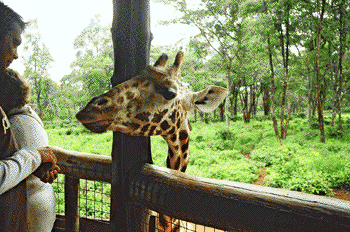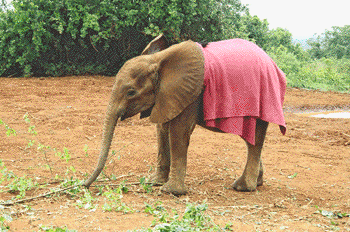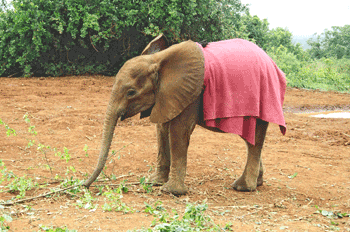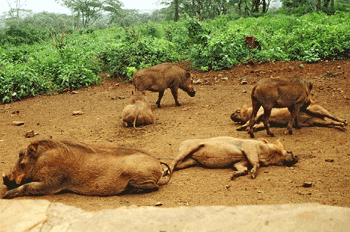The value of ivory and rhino horn continues to rise rapidly, as does the demand for ‘wildlife products’.
Across Africa, one elephant is being killed every 15 minutes for their tusks. This continued illegal trade will lead to the species’ extinction by 2025. The hotel and tourism industry’s concern goes well beyond statements.
Some five per cent of all AHIF revenues are being given to the David Sheldrick Wildlife Trust which looks after orphaned baby elephants and rhinos, including those whose parents have been butchered by poachers, and it has several anti poaching initiatives.
Wildlife is the reason why tourists come to Africa.
As each herd is decimated, so too is the potential employment of thousands of people, most of whom are on low incomes. Poaching is not just about killing animals; it’s about destroying livelihoods.
“Poaching in Africa is happening on an industrial scale,” said Nick van Marken, the leader of Deloitte’s international Travel, Hospitality and Leisure practice.
He continued: “Poachers are using automatic weapons to slaughter entire herds. They then hack off the tusks and horns.
“Rhino horn is ground down in Africa and then smuggled out.
“Wildlife is part of Africa’s natural infrastructure - remove it, and one of the primary reasons for visiting the continent will disappear.
“It’s time for the industry to step up and speak out.”
KENYA RAMPS UP ITS WILDLIFE CONSERVATION CAMPAIGNS
Apr 07, 2014 This Spring, the Kenya Tourism Board introduces its campaign for conservation in the U.S., in an effort to demonstrate the importance of wildlife conservation in Kenya.
The Kenya Tourism Board (KTB), along with the Kenya Wildlife Service (KWS), will host a wildlife conservation-focused media luncheon for key media, trade partners and industry executives at the Harvard Club in New York on April 15, 2014.
The event will feature new programs and current initiatives being implemented in Kenya. A number of conservationists, research scientists from the KWS, and community cultural ambassadors will participate in the event. Featured speakers include scientists Shadrack Mumo Ngene and Dr. Charles Musyoki, and cultural conservation ambassadors, Samson Parashina and Josephine Ekiru from the Maasai and Samburu communities.
"Wildlife tourism is the backbone of Kenya’s economy, therefore wildlife conservation is critical to Kenya’s tourism industry. It is important that we increase awareness for wildlife conservation efforts to ensure that Kenya remains the premier wildlife and safari destination in Africa," said Al Merschen, Regional Director for the Kenya Tourism Board in the U.S.
The Kenyan government has increased its campaigns and awareness efforts for wildlife conservation, including placing stiffer penalties on poachers, as the threats of animal poaching and wildlife extinction remain throughout the region.








